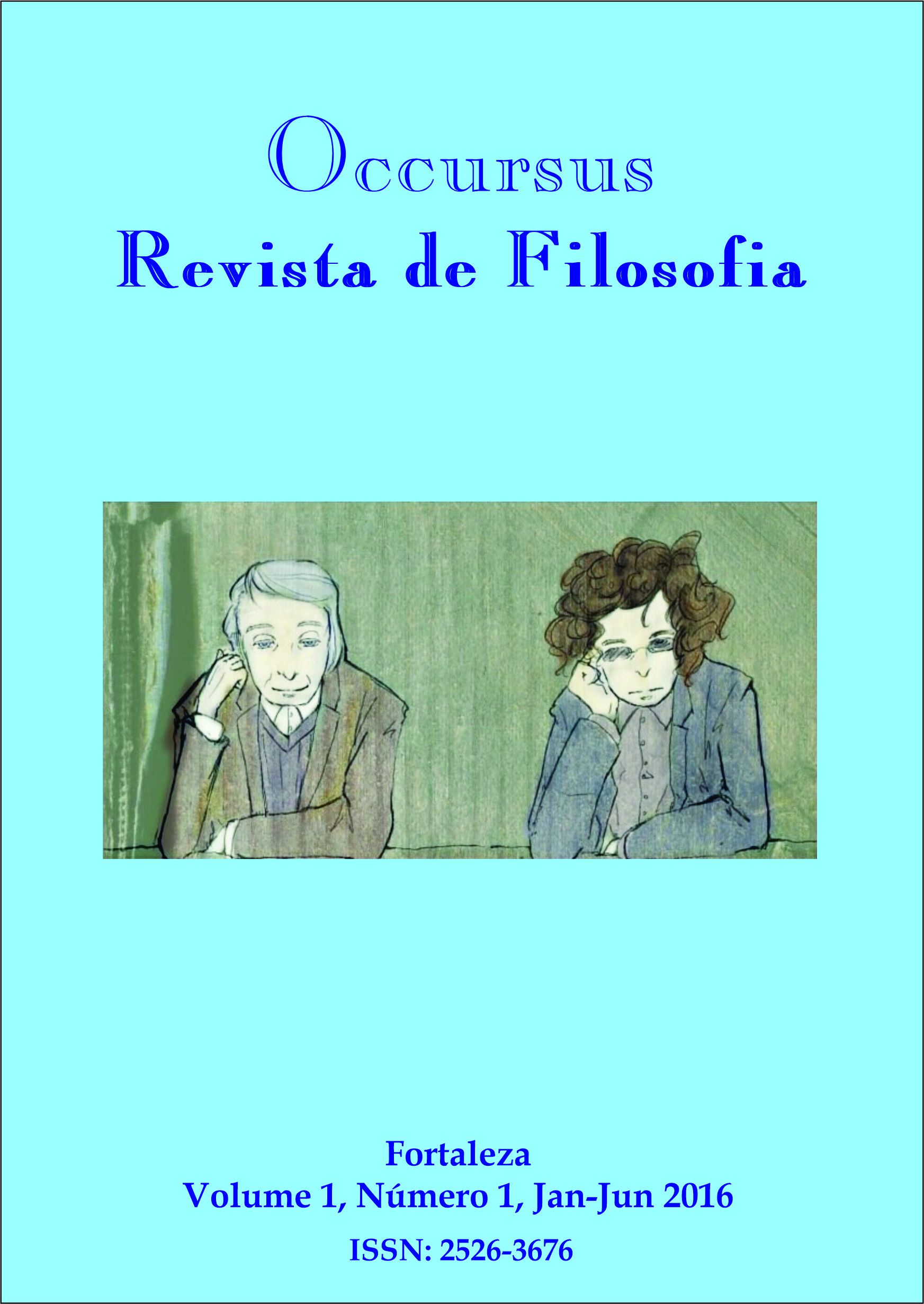A unidade do infinito e finito para além das simples oposições do próprio entendimento em Hegel
Palavras-chave:
Unidade. Infinito. Finito. Entendimento. Determinação.Resumo
A filosofia busca pela razão a unidade. Neste contexto, nos direcionamos ao movimento dialético encontrando na a natureza do universal, o algo simples que contém por meio da absoluta negatividade, a suprema diferença e determinidade em si. Assim, o ser é algo simples, e num primeiro momento, não se pode dizer dele o que é; ele é, por conseguinte, imediatamente uno com seu outro, com o não ser. Exatamente esse é o seu conceito, de ser algo assim simples, que imediatamente desaparece em seu oposto; visto que ele é o devir. Destarte, o universal, ao contrario, é o simples, que igualmente é o mais rico em si mesmo, justamente porque é o conceito. Assim, o campo de investigação desta exposição nos direciona, a exemplo, para uma oposição entre o finito (natureza) e o infinito (espírito), onde a síntese sujeito-objeto é destituída de sua essencialidade, visto que cai em uma unilateralidade do ideal regulativo posto pelo entendimento. Mas, torna-se reflexão como aparência da essência de si mesma. É sob essa afirmação que empreendemos ter como objetivo neste artigo, abordar sobre a unidade entre o infinito e o finito, – o absoluto, para além das simples oposições do próprio entendimento. Para isso, empreendemos a partir do livro A Ciência da Lógica [Wissenschaft der Logik] de Hegel (1770-1831), constituindo o complexo como objeto da Lógica, empreendendo a ideia como o sistema dos conceitos puros, onde possibilita a lógica, a manifestação do entendimento.
Referências
HEGEL, G. W. F. Enciclopedia de las ciencias filosóficas en compendio. Edición, introducción y notas de Ramón Valls Plana. Madrid, Alianza Editorial, 2005.
HEGEL, G. W. F., Fenomenologia do Espírito (Tradução de Paulo Meneses), Petrópolis: Vozes, 2005.
HEGEL, G. W. F. Vorlesungen über die Geschichte der Philosophie, III, In: Hegels Werke. Herausgegeben: Hegel-Institut Berlin, Talpa Verlag, 1998.
HEIDEGGER, MARTIN. Hegel e os Gregos (Tradução de Ernildo Stein), São Paulo: Duas Cidades, 1971.
HENRIQUE VAZ. Senhor e Escravo: uma parábola da filosofia ocidental. In: C. TOLEDO, L. MOREIRA (org.), Ética e Direito, São Paulo: Loyola, 2002.
KANT, IMMANOEL. Crítica da Razão Pura. Tradução de Valério Rohden, São Paulo: Abril cultural, 1974.
KOYRÉ, Alexandre. Estudos de história do pensamento filosófico. Trad: Maria de Lourdes Menezes. Rio de Janeiro: Forense Universitária, 1991.
LARDIC, J. M. A contingência em Hegel. In: HEGEL, G.W.F. Como o senso comum compreende a filosofia. Tradução de Eloisa Araújo Ribeiro. São Paulo: Paz e Terra, 1995b.
NIEL, Henri. De la médiation dans la philosophie de Hegel. Aubier, Éditions Montaigne, 1945.
NOËL, Georges. La logique de Hegel: La science de l’être. Revue de Métaphysique et de Morale. Paris, T. 2, nº 3. Maio de 1894, pp. 270-298.
OLIVEIRA, M. A. de. Para além da fragmentação – Pressupostos e objeções da racionalidade dialética contemporânea. São Paulo: Edições Loyola, 2002.
OLIVEIRA, M. A. de. Sobre a fundamentação. Porto Alegre: Edipucrs, 1993.
RAMETTA, G. Concetto del tempo: Eternitá e “Darstellung” speculativa nel pensiero di Hegel. Padova: ed. FrancoAngeli, 19__.
Arquivos adicionais
Publicado
Como Citar
Edição
Seção
Licença
Copyright (c) 2024 Evandro Pereira da Silva

Este trabalho está licenciado sob uma licença Creative Commons Attribution 4.0 International License.




